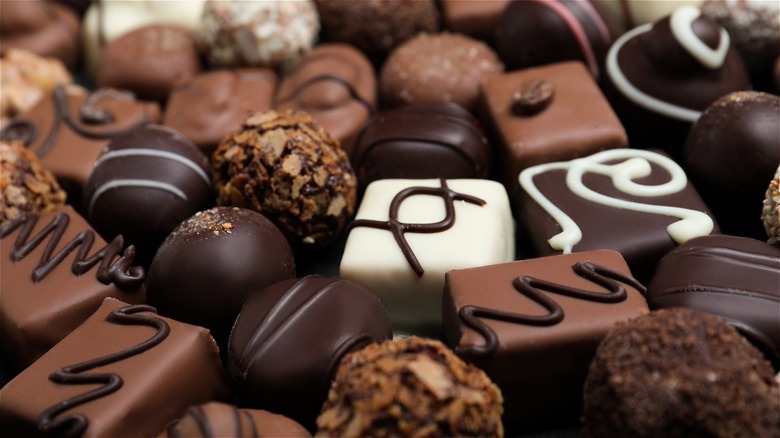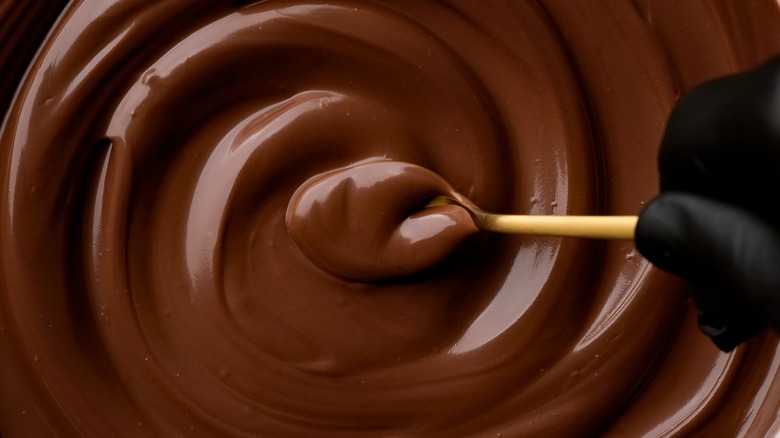Here's The Difference Between Belgian And Swiss Chocolate
Chocolate is one of the finer things in life, and those of us who like to make the most of our time on Earth are typically pretty big fans of this creamy cocoa treat. Did you know that chocolate is actually an aphrodisiac, a food that "arouses or is held to arouse sexual desire?" Other popular aphrodisiacs include oysters, asparagus, arugula, and bananas. These, like chocolate, contain chemicals such as anandamide and phenylethylamine, which raise our levels of serotonin, the hormone that's supposed to make us feel really good (via The Independent).
And chocolate is so beloved that in the U.S. the average American eats about 9.5 pounds of chocolate annually (per Forbes). On top of that, in 2020, a whopping 268.09 million Americans admit to having eaten chocolate and other types of candy (per Statista). And those who love to indulge in dark chocolate are in for a treat because eating this type of chocolate with high cocoa content can protect people from heart disease and provide them with valuable minerals and antioxidants.
However, dark chocolate should also be eaten in moderation as it contains lots of calories and sugar (per Healthline). If you're at a loss for what type of chocolate is best for your fix, two European countries are the most famous for making this dark and creamy confectionery: Belgium and Switzerland. However, there are some notable differences between Belgian and Swiss chocolate that you should know about.
Do you prefer smooth and creamy or bitter and dark?
According to Ashers Chocolate Co, one of the greatest debates in the world of food is over chocolate. Which one is better — Swiss or Belgian? It all depends on personal preferences, as the answer to that question is truly a subjective one. The Swiss perfected the art of milk chocolates, and Rudolph Lindt used the process of conching, e.g., warming the chocolate as it passes through rolling pins of different shapes and sizes. This results in creamy and smooth chocolate, while Belgian producers use emulsifiers to get the same effect. This means that the flavors and textures are different in Belgium and Switzerland.
Belgian chocolate typically has a higher cocoa content, so if you want slightly bitter dark chocolate, you should choose the Belgian ones. On the other hand, if you're more into creamy and milky stuff, opt for Swiss chocolate. But there's more. Take pralines and chocolate truffles – Belgium is famous for both, and you can find an array of unusual fillings and flavors in Belgian pralines for a bit more diversity on your palate.
And suppose you've wondered who eats more chocolate — the Belgians or the Swiss. The Economic Times reports that "in 2017, Switzerland was the highest consumer of chocolate per capita, with an average of 8.8 kg (19.4 lbs) consumed per person," so that's at least one matter settled in the endless debates about Swiss and Belgian choco-lovers.

